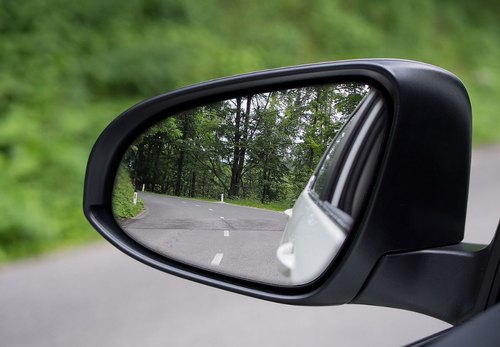The year that was and the year to come. Can anyone imagine a more incredible and challenging time?
First Quarter 2020 was a record quarter of revenue and earnings for most collision repairers across North America. Universally, operators were expecting the best was yet to come. The COVID virus was a page 12 concern, not front and center of every media outlet across the world. No one, except some scientists, expected it would seriously impact the country or our industry.
As the First Quarter of 2021 rolls out, everyone is more sober about risks, far more realistic and far more experienced at dealing with uncertainty.
Questions continue to swirl. Will state-wide shutdowns continue? Will vaccines roll out faster or slower? When will traffic start to ramp back up as communities unlock commerce, schools and socializing? Will the latest PPP loans help businesses survive until commerce returns to a more normal level? Will the next gut-punch be a recession?
There are no certain answers, but the collision repair industry has proven resilient in the face of dramatic change many times in the last two decades – multiple recessions, consolidation of shops and insurance companies, the impacts of ADAS, technician shortages – to name just a few. The industry should expect 2021 to surprise us again in unforeseen ways.
Now to look back at what happened in 2020.
Consolidators Roll On
Two of the three largest consolidators continued to acquire, grow and build new locations across most of their existing markets, as well as entering new ones. Only Service King slackened its pace, contending with shutdowns, shop closures and debt issues.
Despite some temporary adjustments, reductions in rents to landlords and staff terminations, Caliber continued to grow its footprint, ending 2020 with approximately 1215 shops, up from 1113 at the beginning of 2020. Among its significant acquisitions during the year were 7 Professional Collision shops in Alabama, 4 Westside Auto Body shops in Idaho and 3 Neira’s Collision Centers in California. The vast majority of its growth occurred in the development of brownfield and greenfield shops and single shop acquisitions.
Gerber began 2020 with more than 520 US shops and closed on 24 in the first quarter, including the 12 Vision Collision shops in Idaho and Michigan and the 6 International Auto Crafters shops in California. Second quarter they paused to better survey the new reality of the COVID landscape. Third and fourth quarter they relaunched in Southern California, with the acquisition of 12 shops from First Certified Collision in the Inland Empire region east of LA, and continued to grow in almost every region of the US including 4 shops in Michigan and 14 in other states. Gerber ended the year with 578 shops.
At year end Service King appeared to be awakening from its long hiatus acquiring or opening 5 additional shops while closing one.
Scorecard 2020:
- Caliber – 102 additional shops
- Gerber – 50 additional shops
- Service King – 4 additional shops
Private Equity Firms Continue to Search for Perfect Platforms
Private Equity firms seeking to enter the industry have been looking for just the right platforms from which to launch new entrants into the industry. For them, the perfect platform has high enough revenues and EBITDA to warrant their time and capital, as well as enough shops; but not too many shops, unless they have the right management team to be able to acquire, integrate and operate their new platform.
New Private Equity Investors
Center Oak Partners, a Dallas based PE firm, established itself as a serious player by acquiring 20 shops in the Ohio River and Michigan regions to create CollisionRight under the aegis of an experienced aftermarket executive, Rich Harrision, former CEO of TruRoad.
Quality Collision acquired four Brandywine Coachworks in suburban Philadelphia and Master Collision Group with five shops in the Minneapolis market. Susquehanna Private Capital is backing Quality Collision, which is headed by former Service King executive Jerod Guerin.
At least six other private equity firms are in the hunt for platforms as well. The underlying thesis for these firms appears to be their conclusion that even in a consolidating industry, scale and management will allow higher returns as industry leaders like Caliber and Gerber demonstrate increased value over long periods of investment.
Lift Auto Group, a Canadian MSO with 12 shops in Alberta, British Columbia and Saskatchewan, now has two private equity backers. PFM Group invested an undisclosed amount to provide additional capital for further expansion following a 2018 investment by Canadian Business Growth Fund.
Franchisors and Networks
Driven Brands continues to create its own weather by acquiring additional aftermarket franchise platforms, growing those platforms with new franchisees and then integrating the data generated by their multiple entities to more effectively generate revenue increases and expense reductions.
Key 2020 acquisitions included the February acquisition of Fix Auto USA and its largest franchisee, Auto Center Autobody. Combined with its 2019 acquisitions of Canadian-based glass replacement company Clairus Group and the ABRA franchise network of 57 shops, Driven now aggregates service, repair and replacement data across 2,800 aftermarket locations. Driven is aggressively adding more new franchisees at Carstar and Fix even as some of its larger network MSOs are being acquired by Caliber and Gerber.
Driven has filed an S-1 in anticipation of an IPO in the first quarter of 2021.
CSN, with a 200-shop network in Canada, acquired the 40-shop US network Collision 1 as its platform for entering the US market.
Southern California based Certified Collision Group continued its affiliate growth with more than 550 shops by year end.
And Fix World is entering the US franchise market with the ProColor brand, acquired in 2019 from FinishMaster. With 172 ProColor shops in Canada, Fix World expects the brand to make US inroads among single shops that continue to search for a value-added home in a consolidating industry.
Super-Regionals Flex Growth Muscles
Building on its recapitalization by New Mountain Capital, Classic Collision grew from 24 shops in January to 57 shops by year end. Led by an aggressive team of ex-ABRA executives, Classic acquired 23 additional shops including 7-shop California platform Pride Auto Body, as well as multiple locations across its primary markets in Georgia, Florida, South Carolina and Alabama.
Illinois-based Crash Champions launched its own entry into California by acquiring the largest platform in the state, Pacific Elite with 23 shops in early January. During the rest of 2020, they acquired 8 midwestern shops as well as Fountain Valley Bodyworks with 2 Southern CA shops in October. Closing out the year with four more shops netted Crash Champions a total of 52 shops at year end. Backed by A&M Capital, Crash is now the sixth largest operation in the US after the Big Three, Joe Hudson’s and Classic Collision.
Joe Hudson’s continued its quiet growth under the radar. Now with more than 115 shops, it continues to build up its management team under new owner TSG Consumer Partners.
Backed by private equity firm KinderHook Industries (which also owns asTech), ProCare Collision was judicious in its growth during 2020. It acquired the six-shop MSO Hodges Collision in Houston and several single shops in their key markets in Texas, ending the year with 42 shops.
Fast Growing Regional MSOs
Many regional and single city MSOs continue to grow by acquisition. With the plethora of single shop and small MSO owners looking to find homes, the opportunities to grow regionally are expanding. Among the notable operators at this scale are Collision Works, based in Oklahoma City, which has more than doubled its locations over the past two years to a total of 35 shops in Oklahoma and Missouri.
John Harris Body Shops operated by the three offspring of founder John Harris now totals 15 shops in South Carolina and Georgia. Their expansion has been primarily with greenfield shops. G&C Auto Body in Northern California is another second-generation operation headed by the Crozat brothers with 17 shops that continues to expand largely by acquisition.
Currently the largest CARSTAR franchisee, Chilton Auto Body, a 12-shop California-based MSO, is poised for further growth after adding former Service King CEO Chris Abraham as its new CEO. Mike’s Auto Body, another robust Northern California operator overseen by second generation executives Brennan Rose, CEO, and Ragen Rose, CFO, has expanded to 16 shops.
Valuations
With single shop acquisitions being the most frequent transaction in the industry, valuations are more easily tracked in our proprietary database. Not surprisingly, with an increasing number of sellers, transaction values have come down over the past two years. However, continued opportunities for sellers now include more regional and local MSOs seeking to grow.
Platform acquisition values have held up as private equity interest has remained strong and as the Consolidators and Super-Regional MSOs expand into new markets.
Mid-size MSOs with 3 to 8 shops are maintaining their reasonable values as the Super-Regionals continue to bulk up in their existing markets and expand into new ones.
Overall, despite the ravages of COVID, the number and value of transactions has been remarkable.
Insurer Changes
As the Consolidators enhance their offerings to insurers, DRP networks are becoming more restrictive. Cycle times and average cost of repairs are putting insurers under enormous pressure to reduce costs. So insurers are channeling more assignments into the largest operators and requiring them to take on more administrative responsibilities.
State Farm continues pruning its Select Service program. Even the strongest regional MSOs are being disappointed by State Farm’s changes. There have been multiple market dominant platforms, from $15mm to $50mm, who have found themselves losing appointments after decades of superior performance.
GEICO is working out the kinks of its 2.0 program, opening new opportunities for shops to reengage after termination from the ARX program in the past.
Conclusion
From the depths of despair in April to the optimism of the late summer rebound to the chilly waters of December 2020 was a roller-coaster ride – a ride no one ever wants to set foot on again. No one wants to read or hear the word “unprecedented” ever again either. So we will substitute a host of alternatives – anomalous, bizarre, frightful and remarkable – to describe the year that was.
FOCUS Advisors (focusadvisors.com) is a full-service FINRA-registered M&A advisory firm serving collision industry entrepreneurs looking for advice about growth and sale options, representing them in raising capital or selling their businesses. Managing Director, David Roberts has been the industry’s leading advisor to MSOs and single shops with more than 24 industry transactions in the last 6 years including recent sales of large MSOs throughout North America such as Master Collision Group, Pride Auto Body, Fix Auto USA, Fix ACAB, Price’s Collision, and Herb’s Body and Paint.
Investment Banking Services and Securities offered through Independent Investment Bankers Corp. a broker-dealer, Member FINRA/SIPC. FOCUS Advisors is not affiliated with Independent Investment Bankers Corp.





